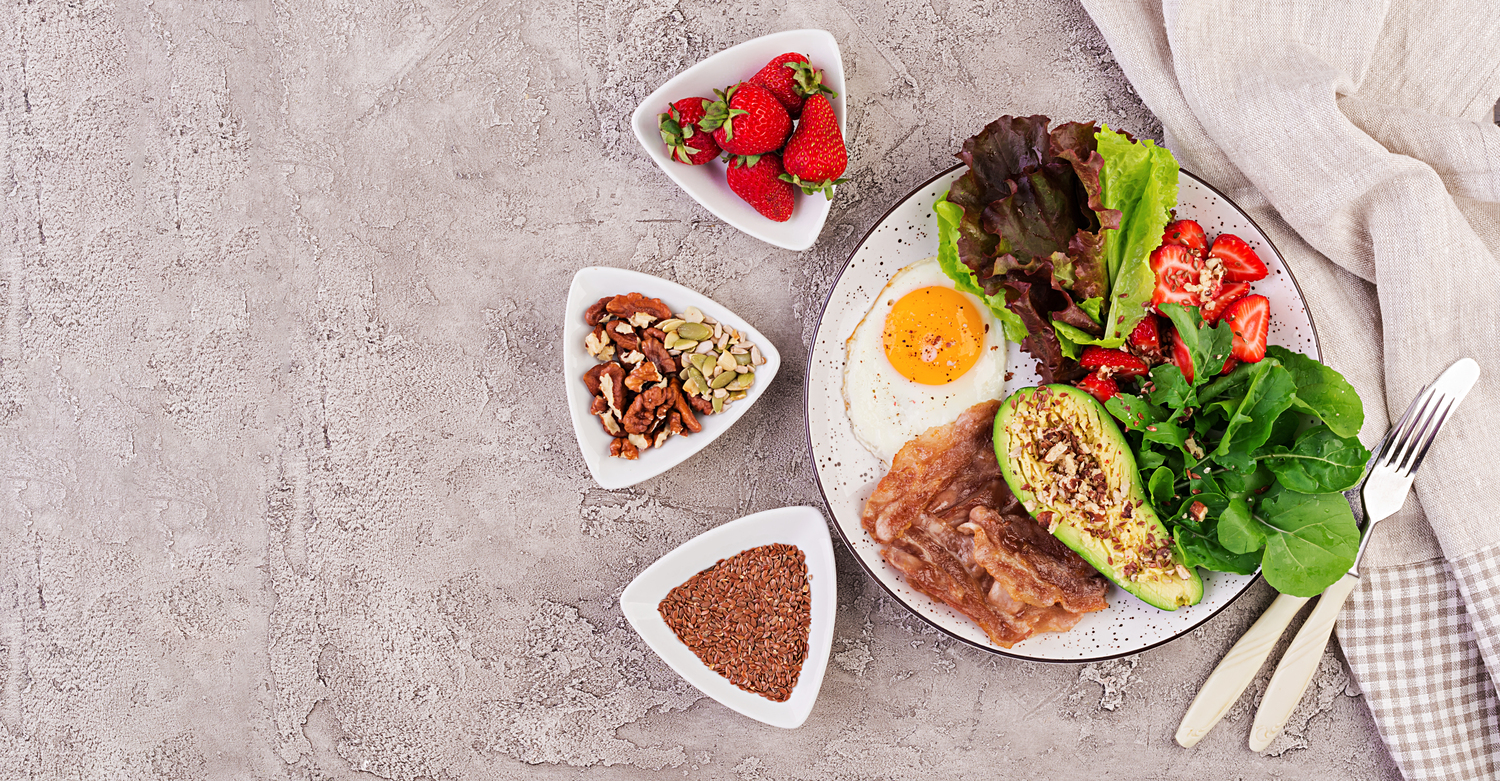Not feeling hungry while on a keto diet is likely the best thing you could ask for.
Many people often stumble on their weight loss journeys because constant feelings of hunger can understandably trump willpower. If you don't feel hungry while on a ketogenic diet and your priority is to lose weight, then it's okay to skip meals and wait until you are hungry to eat.
But if your primary goal is to build muscle, there may be times when you need to eat even when you don’t feel hungry so that you can build your muscles.
Related: 6 Reasons Why You Are Not Losing Weight on Keto Diet
Ketogenic Diet and Meal Frequency

Studies have shown that diets that promote ketosis are very helpful for weight loss due to their appetite-suppressing effects.
A ketogenic diet works with your body, not against it. When it comes to how often you should eat in a day, there are three different approaches you can try:
- The first approach is to eat a few meals each day.
- The second approach is to reduce the frequency of meals and increase the size of each snack or meal.
- The third option is to have three meals a day with a small snack in between.
If you’re starting a keto diet to lose weight, eating a few meals daily may be the best for getting weight loss results quicker. If it's easy for you, you can slowly reduce the frequency of your meals until you're only eating two main meals a day. This is when most people on the keto diet begin to see results on their weight loss journey.
If you're physically active, it's best to start with three meals, with snacks in between, and stick to that schedule as you adjust to the ketogenic diet. In fact, it can help you lose weight in the long run if you stick to this routine.
In general, the best way to decide how often you eat while on the keto diet is to listen to what your body needs. You should also make sure you're eating large amounts of healthy fats and moderate amounts of protein.
Not Hungry On Keto? The Keto Diet Affects Satiety
Changes in the macronutrient composition of your diet have been shown to affect your hormones, gene expression, metabolic pathways, and appetite control. Several studies have demonstrated the appetite-suppressing effects of ketogenic diets and have shown how appetites don’t increase despite weight loss induced by ketosis.
Studies have shown that there is a link between a ketone state and the suppression of ghrelin, which can decrease feelings of hunger while in a state of ketosis. Ketogenic diets have been shown to prevent an increase in ghrelin secretion and, in doing so, lower your appetite and increase your feelings of fullness. Both ghrelin and leptin are vital for regulating your appetite.
NOTE: Leptin is a hormone secreted by the adipose tissue that helps your body maintain its normal weight in the long term. It does this by regulating hunger and by making you feel satiated (feeling full). Ghrelin is made in the upper digestive tract. It stimulates your appetite, promotes fat storage, and enhances food intake.
A ketogenic diet is high in fat. Once carbohydrates are restricted, and protein is balanced, fat is left as a buffer and primary fuel source for energy. Like fiber, dietary fat slows digestion and delays the emptying of your gastric pathways, which helps you feel full for longer.

Studies have also shown that protein is the most filling macronutrient. In addition, amino acid (protein) intake is a major stimulant of cholecystokinin (CCK), affecting feelings of satiety.
If You’re Not Hungry On Keto, Should You Eat Every Meal?
Studies suggest that ketogenic diets affect your appetite, which is great if your goal is to lose weight. If your goal is to build muscle, however, not being hungry is no excuse for skipping meals. At some point, you won't feel hungry, but you will have to eat to achieve your muscle-building goals.
Skipping meals can also affect your energy levels, which can cause you to exercise less and result in fewer burned calories. The reduction in non-exercise activity or thermogenesis is a major factor why it often becomes difficult to lose weight while dieting.
Constantly undereating can affect your energy levels. If you get tired faster and more easily, it may be better to support your body with some more fuel to get the necessary energy your body needs for daily activities.














